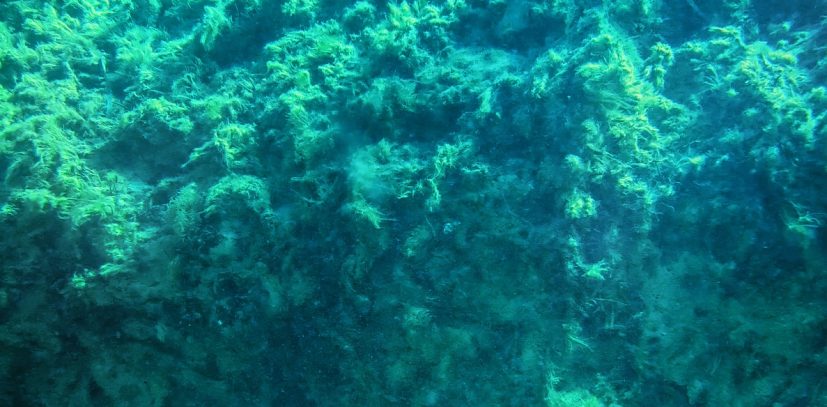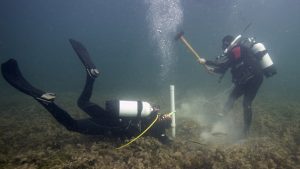
This project is part of a Discovery Early Career Researcher Award (DECRA) where Dr Oscar Serrano is pioneering the use of seagrass sedimentary archives from estuaries in Australia to reconstruct the past history of coastal and terrestrial ecosystems in response to environmental forces.
The Project aims to obtain long-term data series from seagrass sedimentary archives worldwide to answer key environmental and management questions. Globally, billions of dollars are spent on understanding ecosystem services and responses to human and natural pressures, but the short time-span of contemporary datasets means they are often inadequate, since ecosystem change occurs at multiple spatial and temporal scales.

Dr Serrano seagrass archives (Figure 1) can be used to reconstruct the history of coastal ecosystems over millennia, identifying baseline conditions, the time-course of ecological change, cycles and thresholds of ecosystem dynamics driven by human and natural forces, and determining the role of seagrasses as biogeochemical sinks.
The intended outcome is to provide new insights into coastal processes and improve the capacity of scientists and environmental managers to understand, predict, determine and best manage ecological change, thereby helping to remove constraints on sustainable coastal development.
